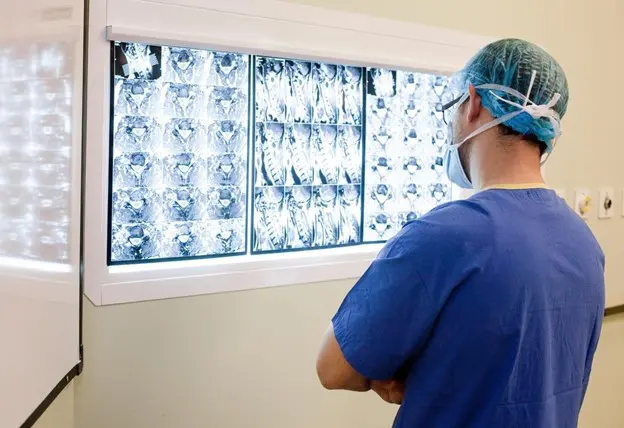Neurological disorders affect the brain, spine as well as the nerves which connect the two and also branch out throughout the body. There are close to six hundred different neurological diseases that can affect a person, and they all vary in severity on a case by case basis. Most know about are common ones, such as Parkinson’s disease, multiple sclerosis (MS), Alzheimer’s disease or epilepsy. But many are still not aware of the symptoms and treatment options of a number of other neurological disorders.
Interestingly, there is one neurological disorder that displays symptoms, but does not indicate any clearly evident problems within the nervous system. This disorder is known as Functional Neurological Disorder or FND, which is quite a complex condition to describe and treat. Having an experienced and compassionate medical practice that can work with you to get to the bottom of your diagnosis is vital to your ongoing treatment and quality of life. The Nirvana Healthcare Network can help you receive an accurate diagnosis and begin your ongoing treatment for FND. But what exactly is FND and what can be done about it over the long term?
Facts About FND
FND is also termed as conversion disorder and is often described as a complex disorder because the body displays various physical neurological symptoms while there is no clear structural problem detected in the nervous system. While this condition does not have one exact cause, we do know that FND is not caused by another disorder and there are no signs of significant structural damage in the brain.
The patient can function normally, however, their brain is unable to send and receive signals in the moment. Things like memory, concentration, cognition, and processing sensations can be affected. FND can be termed as a disability since its symptoms hamper normal functioning of individuals suffering from the disorder. FND has two primary categories — psychogenic nonepileptic seizures and functional movement disorders.
Symptoms of Functional Neurological Disorder
The symptoms are the main tell-tale signs of any disorder and it is these symptoms of FND that make it difficult for patients to operate on certain days and thus classify the disorder as a “disability.” Additionally, patients have no control over their symptoms and do not display them consciously or deliberately.
The typical symptoms observed include:
- Experiencing difficulty concentrating on things
- Having hearing difficulties or deafness
- Experiencing fatigue
- Displaying impaired movement and sometimes also loss of balance
- Expressing lack of responsiveness
- Experiencing difficulty in swallowing
- Problems with memory and retention
- Loss of certain senses, such as touch or smell, therefore sometimes being associated with numbness
- Feeling of a tingling sensation in skin
- Experiencing pain in muscles, joints, or skin
- Attacked by seizures or even paralysis
- Experiencing problems, such as speech problems and vision problems
- Feeling sensations, such as tremors and twitches
- Experiencing weakness in the body
These symptoms usually come and go and their duration varies from patient to patient and the symptoms usually resolve on their own. But for some, duration and severity of the symptoms persist, hindering their ability to carry out normal day-to-day activities. Thus, it turns out to be a disability.
Causes and Risk Factors
There is no cause known for the disorder and it is believed that an internal conflict, such as stress, can lead to the disorder. For example, a person who usually believes in violence and in a traumatic event wants to control their urge to react violently, may experience symptoms such as numbness in the arms and legs, since they have suppressed the urge to react.
The risk factors which are believed to increase the risk of the disorder include:
- Distressing life events
- Personality disorders
- Childhood traumas
- Dissociative disorders
- A family member who is already suffering from FND
FND is thus a complex disorder which can disable the functioning capability similar to other neurological disorders, like Parkinson’s and MS.
Diagnosing FND
While there isn’t a single test that can diagnose FND, a trained doctor can assess your health, medical and family history to rule out any other neurological disorder that presents similar symptoms. FND cannot occur in tandem with these symptoms, so ruling them out is vital to an accurate diagnosis. Your physician will look for specific patterns of symptoms and make an informed diagnosis.
Trust the Nirvana Healthcare Network With Your FND Diagnosis
Choosing the Nirvana Healthcare Network for your Functional Neurological Disorder (FND) diagnosis and treatment can be a game-changer in your healthcare journey. FND, previously viewed as a diagnosis of exclusion, is now recognized as a rule-in diagnosis with available treatments. Nirvana Healthcare Network stands out for its dedicated team of doctors and healthcare professionals who work together to manage the symptoms of FND. While functional imaging is still under development and not used in individual diagnoses, our team relies on a comprehensive assessment to understand the nature of your disorder. Our personalized approach to treatment depends on your specific signs and symptoms, ensuring you receive care tailored to your needs. With Nirvana Healthcare Network, your health and well-being are our utmost priority.

